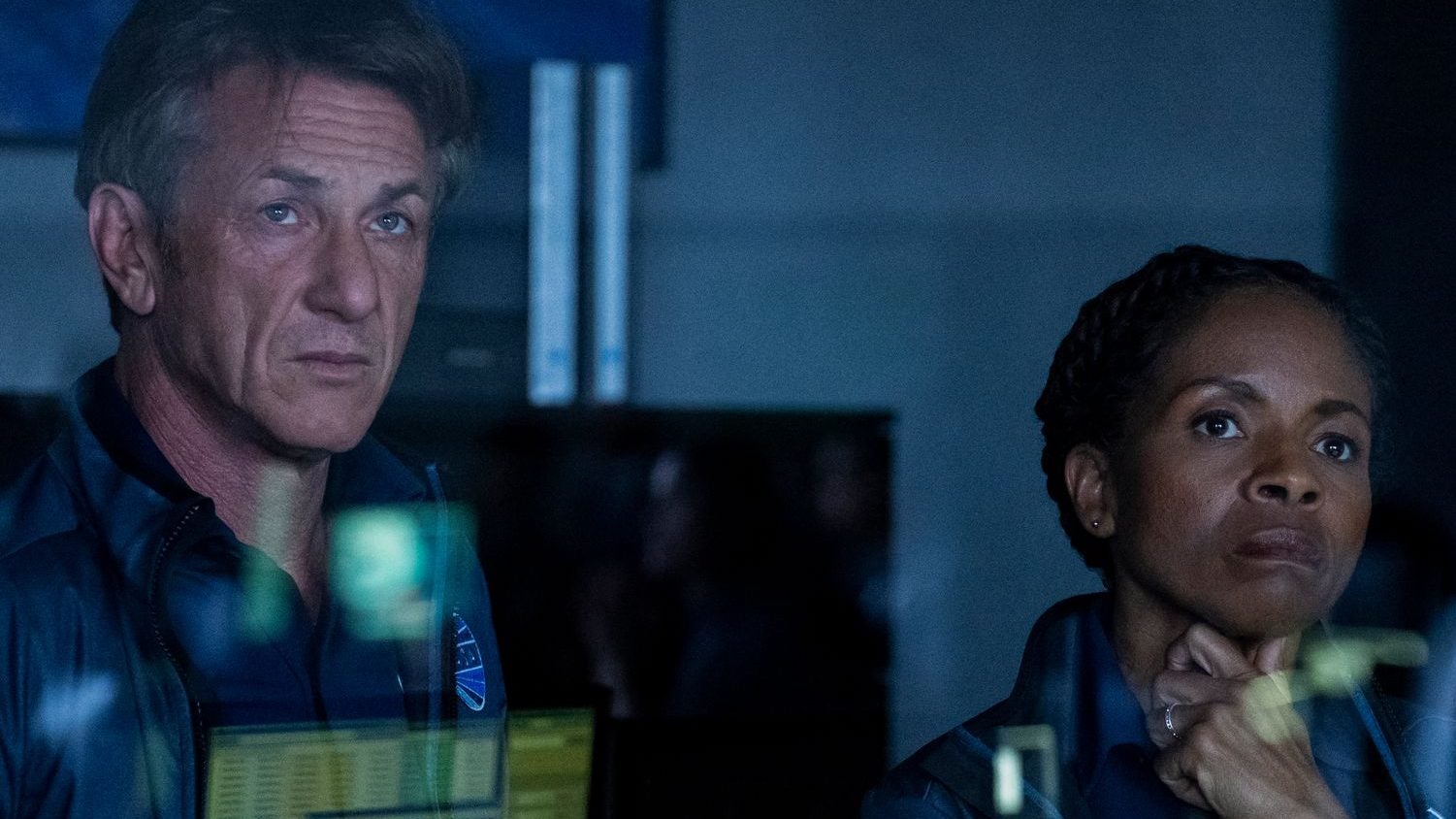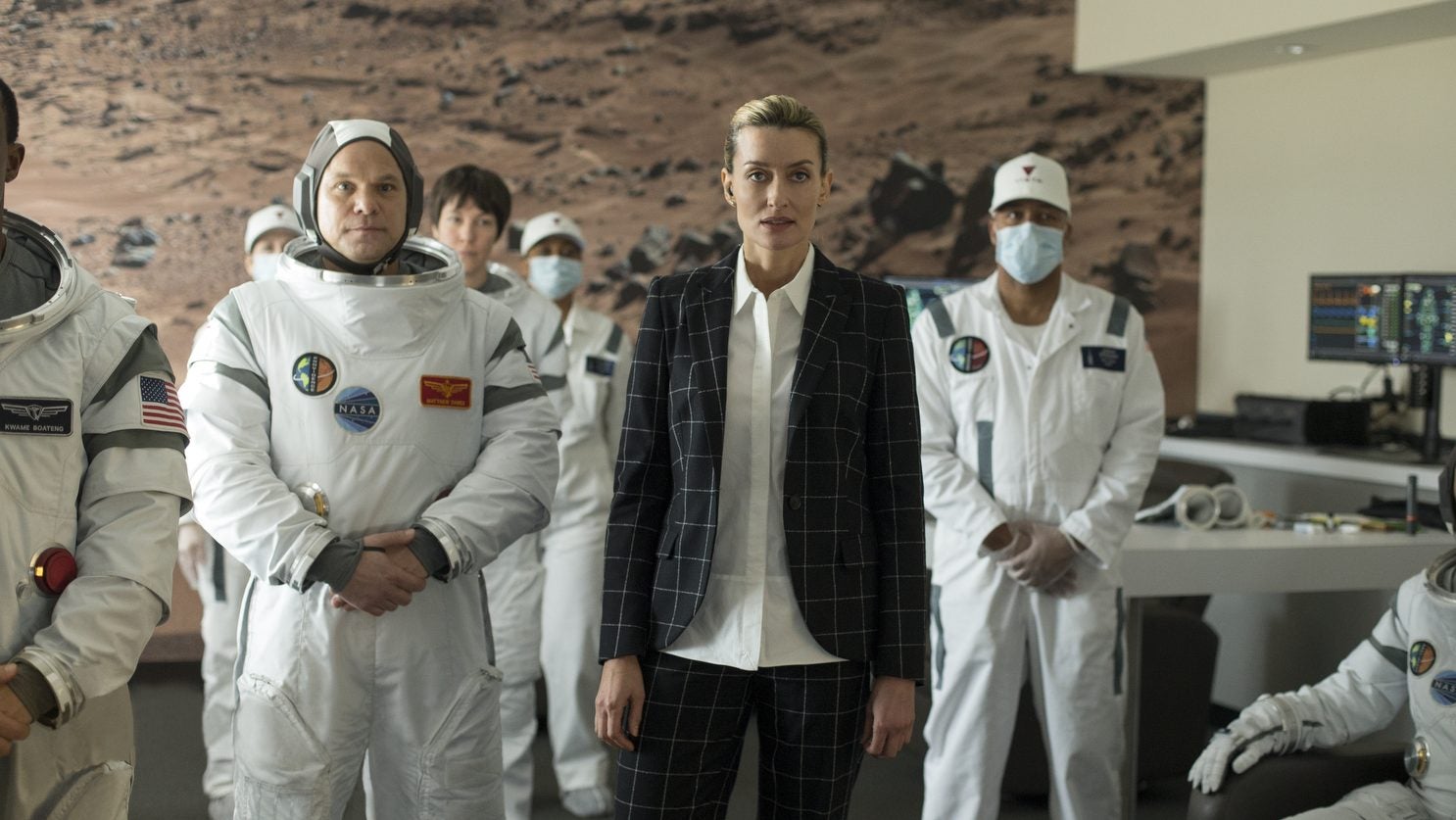The Mars colonization drama “The First” is a moving, sincere reminder of human potential
It’s good to be space, isn’t it? Not only does the final frontier get to be utterly indifferent to our daily terrestrial crises, but it’s always got Hollywood fawning over it—this year especially. Next month, Ryan Gosling will slip the surly bonds of Earth in First Man, the Neil Armstrong drama that’s sure to land multiple Oscar nominations. Later this year, we’ll be treated to more space-bound films starring Robert Pattinson and Brad Pitt. And that’s in addition to all the space stuff we watched earlier in 2018, including Star Trek and Lost in Space TV reboots, a Han Solo movie, and…whatever The Cloverfield Paradox was supposed to be.


It’s good to be space, isn’t it? Not only does the final frontier get to be utterly indifferent to our daily terrestrial crises, but it’s always got Hollywood fawning over it—this year especially. Next month, Ryan Gosling will slip the surly bonds of Earth in First Man, the Neil Armstrong drama that’s sure to land multiple Oscar nominations. Later this year, we’ll be treated to more space-bound films starring Robert Pattinson and Brad Pitt. And that’s in addition to all the space stuff we watched earlier in 2018, including Star Trek and Lost in Space TV reboots, a Han Solo movie, and…whatever The Cloverfield Paradox was supposed to be.
Into this vast cluster of content launches a new space TV series, but this one is less concerned with dazzling sci-fi sequences than it is the honest-to-goodness human beings determined to explore the universe. Hulu’s The First, from House of Cards creator Beau Willimon, follows the struggles of a crew of astronauts to become the first humans on Mars. Very little of its eight-episode debut season actually takes place in space. That proves to be for the better.
Two-time Oscar winner Sean Penn plays the commander of the mission, under the direction of tech visionary Laz Ingram (Natascha McElhone), the CEO of a private space manufacturer called “Vista” that’s not unlike Elon Musk’s SpaceX. But Ingram is not Musk—she does not go on podcasts and smoke weed, nor does she accuse heroic cave divers of being pedophiles like her real-life counterpart recently has. Rather, she, and her impressive team of adventurers, are singularly focused on colonizing Mars as an escape hatch for when climate change inevitably renders the only home we’ve ever known uninhabitable.
Best I can tell, The First, which takes place in the early 2030s, is as realistic a space drama as there’s ever been. That will excite some viewers, but likely bore many others. Almost an entire episode is spent on Vista’s scientists trying to solve a communication problem with the MAV—the Mars Ascent Vehicle that was pre-shipped to Mars and is the astronauts’ only way off the Red Planet, should they ever get there. Another episode deals with Ingram and Penn’s character, Tom Hagerty, convincing US Congress to continuing funding the joint Vista-NASA initiative after a previous mission ended disastrously.
The commitment to depicting the logistics of getting such an enormous project off the ground might be a chore if The First weren’t stunningly shot (Polish filmmaker Agnieszka Holland directs the hell out of the first two episodes) and entrenched in huge depths of feeling. Willimon’s show is relentlessly poignant as it probes these men and women’s drives, their psychological flaws, their damaged relationships. It is the first TV show about space that really and truly demonstrates what makes people want—or more precisely need—to risk everything they’ve ever known to leave our little pale blue dot with no guarantee of return.
If you’re the kind of person who enjoys the idea of a brooding Penn recite astronomer Carl Sagan’s famous words (“a mote of dust suspended in a sunbeam”) interlaced with gorgeous images of the northern lights, while gallant Superman-esque theme music plays, then The First is for you. You will get that, exactly, and more moments like it—rousing passages about why space travel is well worth the risks, scenes of families in turmoil over those risks, dreamers relentlessly dreaming, working, collaborating, and, yes, sometimes, sulking.

The First is moving in a way I did not anticipate. It got me wholly invested in not only the few brave souls who volunteer for what very well may be a one-way trip into space, but also in the spouses, moms, dads, and children they leave behind, those who watch helplessly as their loved ones try to tame the final frontier thousands of miles into the blackness.
Penn does yeoman’s work as the dogged Hagerty, who’s reeling from the death of his wife some years back and his daughter’s subsequent drug addiction. He fills the screen with a quiet, simmering rage, and you know at any moment he may implode. The only thing keeping him intact is the belief—almost a religious faith—that his lifelong purpose of breaching the unknown is within reach. But The First is not just the Sean Penn show: It wisely saves room to check in on the lives of Hagerty’s team members, all of whom, in different ways, wrestle with the same choice to willfully imperil their lives for a greater good.
If there’s untapped potential in The First, it’s that the show is not sure how weird it wants to be. It toys with the idea of being truly strange in moments, but doesn’t full commit, almost like it’s testing the waters (for a second season, perhaps). Throughout the eight episodes, an unnamed, unseen narrator with a leathery Southern drawl relays half-baked philosophical axioms about life and nature. Some scenes are interspersed with shots of cicadas hatching and buzzing about (it takes place in Louisiana). And the propulsive, sometimes kooky score by composer Colin Stetson is heavy on the reed instruments, giving The First a soundscape unusual for a series about space travel.
The result of these oddities can be a little jarring, but not always in the worst way. As a fan of audacious storytelling, I welcome these little interludes and hope the show leans into them more if there’s a second season. Space is a bizarre place, one we haven’t come close to fully understanding. It makes sense that a show about space would be similarly enigmatic; Willimon needs to learn that it’s okay to trust those impulses. You’ve somehow convinced Sean Penn to star in a Hulu streaming series about Mars, for goodness sake! Be weird!
All eight episodes of The First premiere on Hulu on Sept. 14.